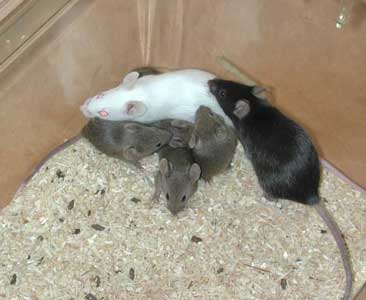Genes and signaling molecules in patterning and cellular
differentiation.
 One of the challenge of developmental and stem cell biology is
to understand how cells know their position in the embryo and
tissues and react upon it by proliferating, migrating and differentiating
to form the embryo and to maintain functional organs.
One of the challenge of developmental and stem cell biology is
to understand how cells know their position in the embryo and
tissues and react upon it by proliferating, migrating and differentiating
to form the embryo and to maintain functional organs.
To address these questions we are studying the role of secreted
molecules during the early phase of development when an embryo
composed initially of a few thousand pluripotent cells will
be organized in three germ layers (ecto-, meso- and endoderm)
with
an antero-posterior axis (head to tail) and a dorso-ventral
axis (belly to back).
To strenghten the results obtained by studying embryos, we
are also analyzing the signals triggering the differentiation
of
embryonic stem cells.
Moreover, some of the embryonic signals are also overactivated
in adult tissues leading to cancer.

In the Developmental and Stem Cell Biology group, we are focusing
on:
-
The role of the several signaling pathways in development and homeostasis
by using transgenic mice and gene expression studies
-
Modeling the embryonic development by differentiating in
vitro embryonic stem cell into muscle or neurons
-
Identifying the signaling pathways involved in some cancers
involving the unregulated growth of stem cell, in particular
in neural
tissue.

The techniques used ranges from Real-Time PCR, in
situ hybridization, embryo microculture
to stem cell in vitro differentiation.
Up